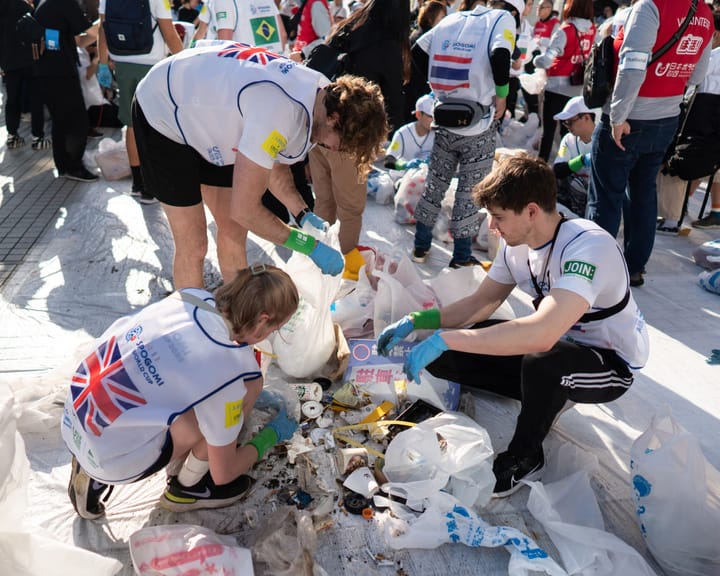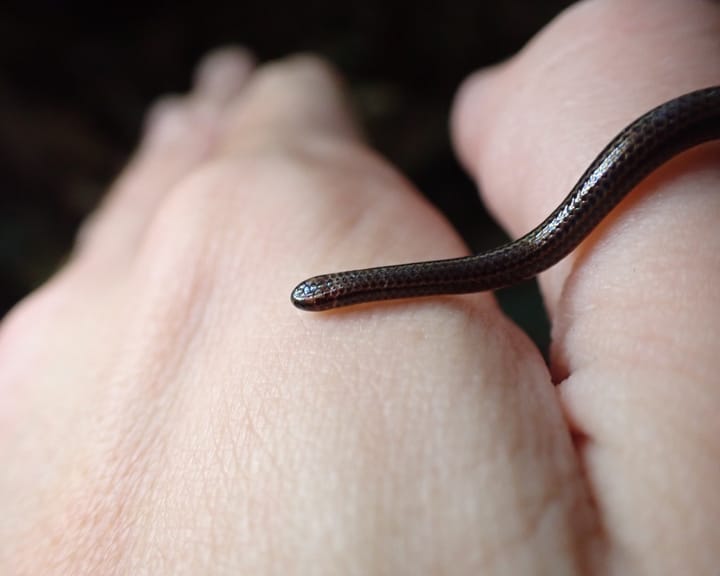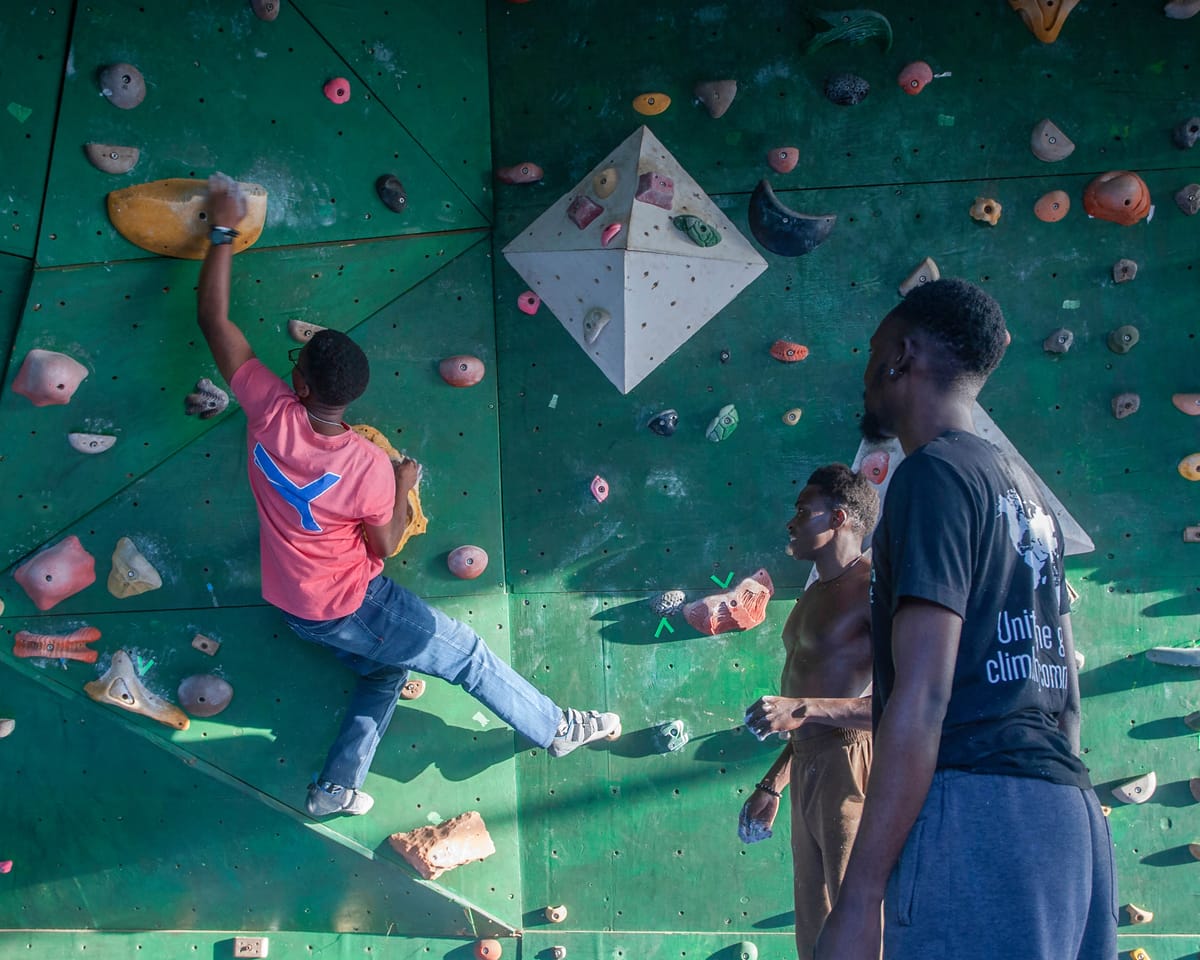Emmanuel Jekete was attending secondary school in 2019 when his mother’s employer, a Canadian, invited him to try a climbing wall in his garden in Lilongwe, Malawi’s capital. Jekete initially found it simple to scale the plastic holds on the vertical wooden board. But when the wall extended at a 25-degree angle, he faced difficulty—and was instantly captivated.
Now, Jekete is among a growing number of young Malawians who have embraced climbing and the camaraderie around it, hoping to see the sport gain traction in the southern African nation.
“I was one of the first Malawians to try both indoor and outdoor climbing, so I thought, ‘I’m going to be one of the pioneers—I’ll definitely make my mark in this sport,’” the 23-year-old said during an interview at the Climb Centre, an outdoor facility managed by a local climbing group in Lilongwe.
Jekete climbs three times a week with friends on bouldering walls—angled wooden structures with plastic grips that require no ropes. Once or twice a month, they venture outdoors to climb cliffs using safety ropes.
“Even on a stressful day, when I’m at the wall, I forget everything bothering me,” says Jekete, who works as a mining company assistant. “It’s like therapy.”
Moses Kalirani, who started climbing with Jekete in 2019 while they were classmates, worked as a coach and gym manager until recently returning to studies.
“I love the sense of community—being part of something meaningful. You’re like a cog in a machine; without you, progress stalls,” he remarks.
Kalirani and his friends hope more Malawians will take up climbing rather than see it as an activity for foreigners. “I’d love for the local community to grow because it’s mostly dominated by people from abroad,” he says.
The climbing initiative was established in 2018 by Tyler Algeo, the Canadian who employed Jekete’s mother. In 2019, the climbing wall was relocated from Algeo’s residence to its current spot.
Access operates on a flexible payment system, with a suggested monthly donation of 35,000 Malawian kwacha (£15) for gym use and additional fees for outdoor excursions. Given Malawi’s economic challenges, most contributions come from international climbers and wealthier locals, while others pay less or volunteer.
All gear, from anchors fixed on cliffs to harnesses, ropes, and shoes, is donated from abroad. Support also comes from an international nonprofit based in Colorado.
Ed Nhlane, who ran a tour company before discovering climbing through a friend in 2019, says he never turned back.
The pandemic reminded Malawi’s climbers to become more self-reliant, says Nhlane, 34. Efforts are underway to boost local participation and infrastructure for the sport.
Read next

"Giant iceberg disintegrates four decades later: A rare survival story"
Gigantic Antarctic Iceberg Nears Disintegration After Nearly Four Decades
Nearly 40 years after separating from Antarctica, a massive iceberg—one of the oldest and largest ever recorded—is rapidly breaking apart in warmer waters and could vanish entirely in weeks.
Earlier this year, the iceberg, called A23a, weighed just under

"Legs in agony as crowds flock to Hackney for litter-picking championship"
Equipped with gloves, tongs, and trash bags, dozens of determined volunteers will gather at Hackney Marshes in east London this weekend.
The activity, known as Spogomi, originates from Japan, where it was developed in 2008 as a competitive way to encourage public space cleanup. It has since spread to schools

"Tiny snake species found in Barbados after two decades unseen"
World’s Smallest Snake Rediscovered in Barbados After 20 Years
The Barbados threadsnake, once feared extinct, has been found again under a rock in the island’s interior during an ecological survey conducted in March by the environment ministry and the conservation group Re:wild.
Measuring just 10cm when fully

